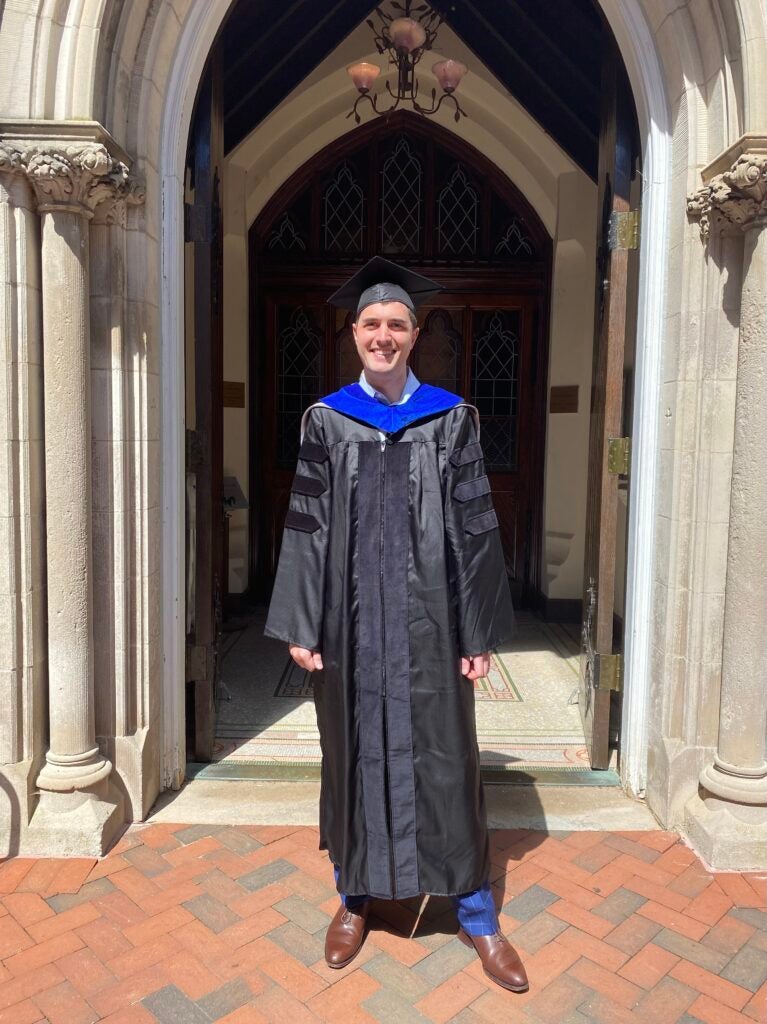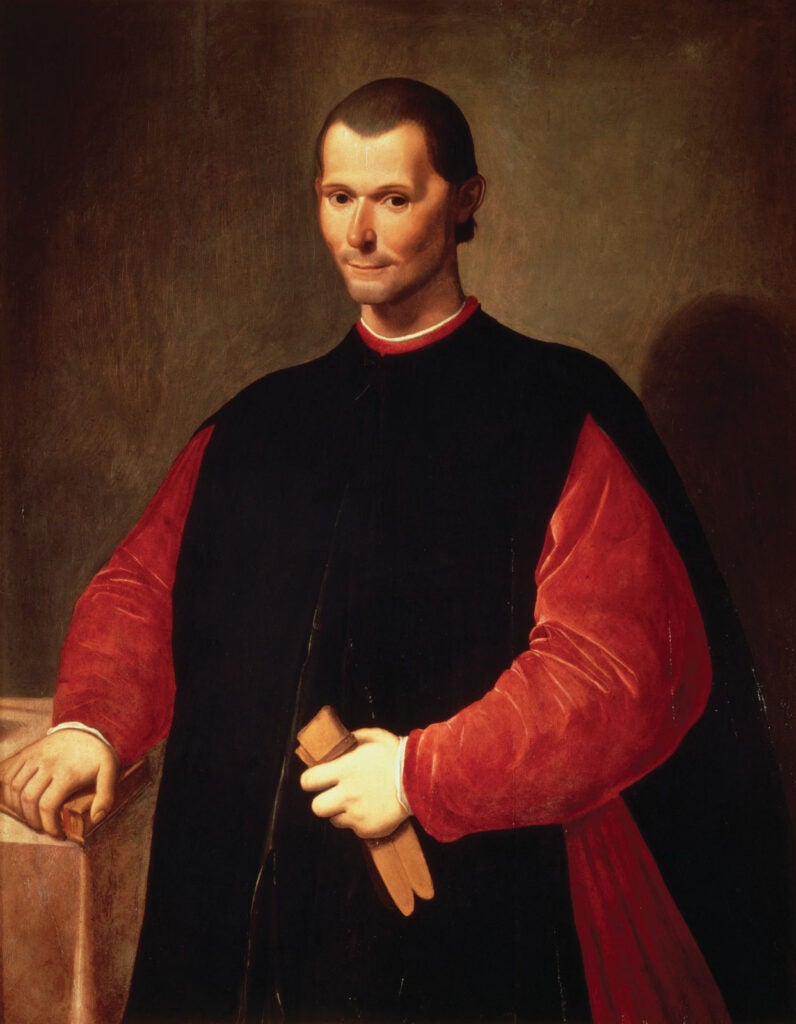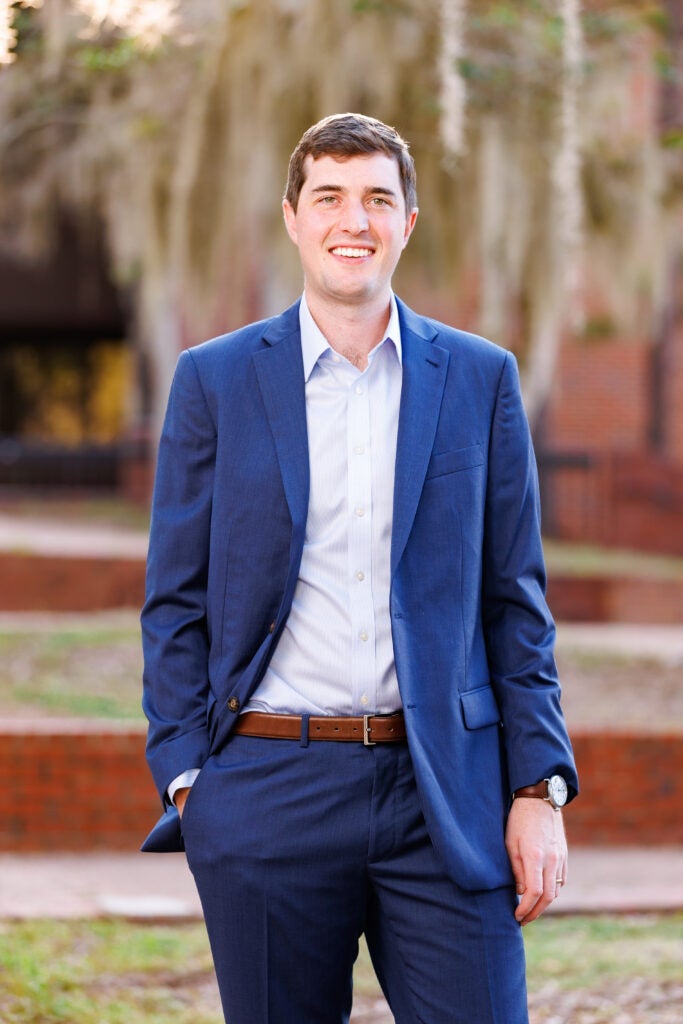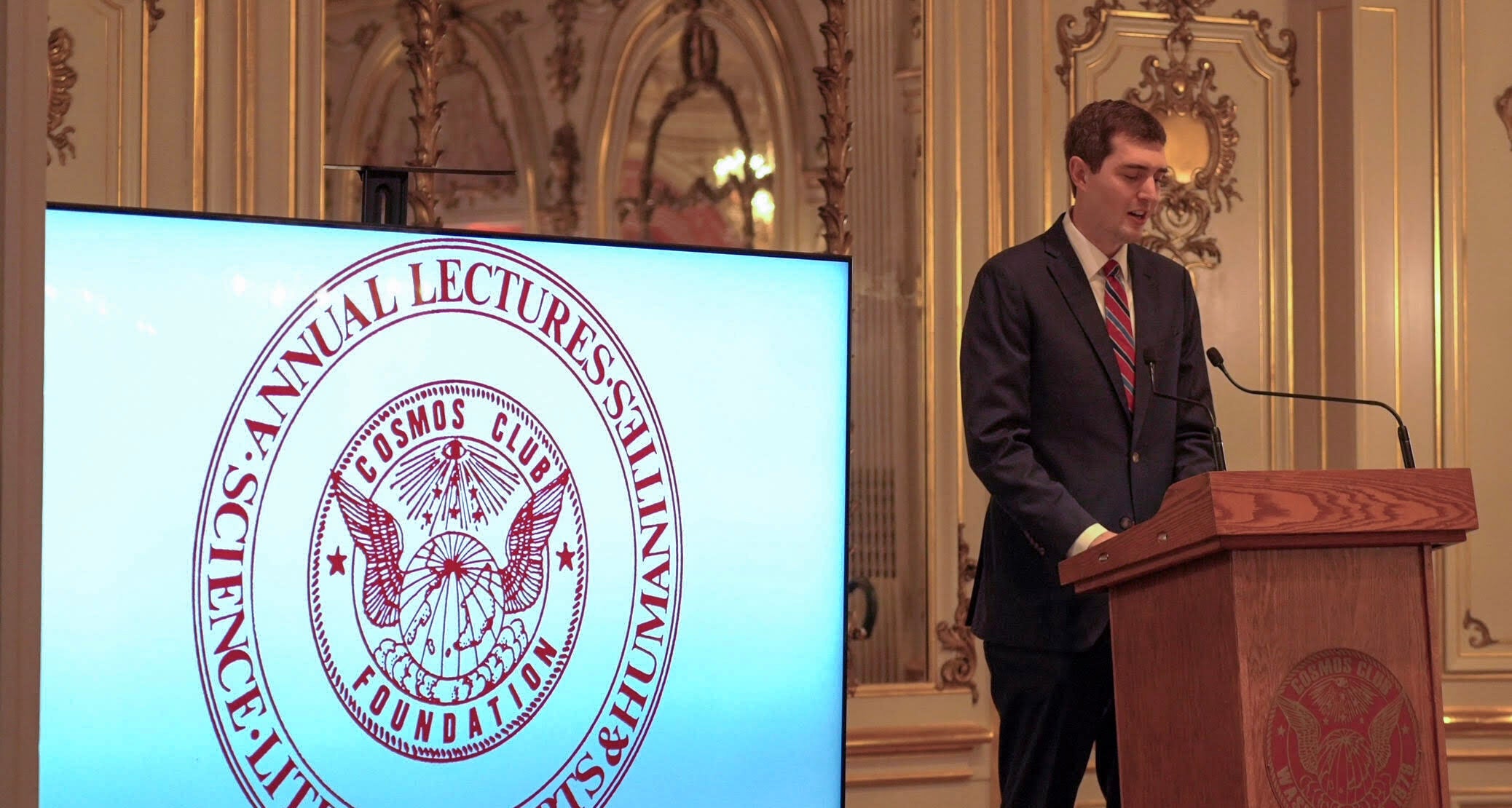Ph.D. in Government Alumnus Wins Cosmos Scholars Prize for ‘Groundbreaking Research’ into Machiavelli and Power Politics
Andrew Gibson (G’20, G’24), a recent alumnus of Georgetown’s Ph.D. in government program, has been named one of the first recipients of a new prize awarded to early-career researchers for groundbreaking doctoral study.
Gibson received the Cosmos Club Foundation’s Cosmos Scholars Prize last month for his Ph.D. dissertation, which traces how 16th-century political scholar Niccolò Machiavelli’s philosophies and writings continued to shape American and European political understanding throughout the 20th century.
The prize comes with a $25,000 award and recognition from the Cosmos Club Foundation, the philanthropic arm of an historic DC social club with a scholarly focus.

Andrew Gibson in his graduation regalia on Commencement Day 2024. (Photo courtesy of Andrew Gibson)
“It’s incredible to have this support moving out of grad school and the Ph.D. process and as I start my academic career,” Gibson said. “The award offers an immense amount of support in order for me to continue my research, work on getting it published and establish my work and name within the field.”
Barbara Culliton, longtime member of the Cosmos Club Foundation and head of the foundation’s Fellows, was part of the team that screened applications for the Cosmos Scholars Prize.
She said Gibson’s dissertation stood out to that initial group, and later a secondary team of reviewers with expertise in political science, for its innovative angle.
“Everybody was very enthusiastic about Andrew’s approach, in the sense that it was original, enlightening, informative and gave people a chance to have a new perspective on some of the things they were already thinking about, in terms of policy and politics,” she said.
Using Past Political Theory to Understand the Present
Machiavelli is a founding figure of modern political philosophy. He is most commonly recognized for his 1513 treatise “The Prince,” which argues that immoral acts can be justified in the pursuit of seizing and maintaining power.
But Machiavelli’s legacy is more complex and nuanced than his popular reputation, and the eponymous adjective “Machiavellian,” seem, Gibson said. Machiavelli was also the author of the “Discourses on Livy,” which many scholars view as advocating for republicanism.

A portrait of Niccolò Machiavelli. (Santi di Tito, Public domain, via Wikimedia Commons)
Gibson’s dissertation, “The Atlantic Machiavellians: Republican Realism, Renaissance Historiography, and Twentieth Century Political Thought, 1915-1975,” analyzes how four 20th-century political scholars interpreted Machiavelli and his work to understand geopolitical challenges of their time.
Gibson’s work demonstrates how these scholars applied Machiavelli’s writings to contemporary power struggles, including the U.S.’s conflicts with Germany and Japan during the Second World War and U.S.-Soviet Union tensions during the Cold War. Through these historic lenses, Gibson also offers insight into how the 21st-century political environment took shape.
“People are talking about the return of great power rivalry a lot in DC,” Gibson said. “And so I wanted to go back and look at how Machiavelli and power politics are being thought of and reinterpreted during previous moments of great power competition.”
While pursuing his Ph.D., Gibson also earned a master’s in government from Georgetown and was named a recipient of the department’s Jill Hopper Memorial Fellowship in 2023. Government professor Shannon Stimson served as his dissertation advisor.
After graduating his doctoral program with distinction in May 2024, Gibson worked as a lecturer in Georgetown’s government department for a year, teaching courses including “Elements of Political Theory,” “American Political Thought” and “Classic Texts of Strategy”.
He is currently a postdoctoral fellow of the America in the World Consortium at the University of Florida’s Hamilton School for Classical and Civic Education.

Gibson is currently a postdoctoral fellow at the University of Florida. (Photo by Matt Pendleton Photography for Frankel Agency)
Continuing Research Excellence
Gibson joins generations of Georgetown graduate students in being recognized for research excellence from the Cosmos Club Foundation.
The Cosmos Scholars Prize replaces an earlier scholarship offered by the foundation, the Cosmos Scholars Grant Program. The former program provided up to $5,000 in research funding for students completing their graduate thesis or dissertation, and 120 Georgetown students won grants between 1998 and 2022.
With the Scholars Prize, the Cosmos Club Foundation recognized an opportunity to substantially support recent graduates as they begin their careers, Culliton said. Awardees have the freedom to use the $25,000 however they choose.
For Gibson, the scholarship means more time in the archives. The award will allow him to travel to conduct additional research as he edits his dissertation into a book and pitches it to university presses.
“I’m looking forward to returning to some of the archives where I researched, which included the Hoover Institution at Stanford as well as Duke University,” he said. “I’m also planning to have a book workshop so I can receive feedback from other, more senior scholars on the manuscript.”
[Lead photo courtesy of the Cosmos Club Foundation]
